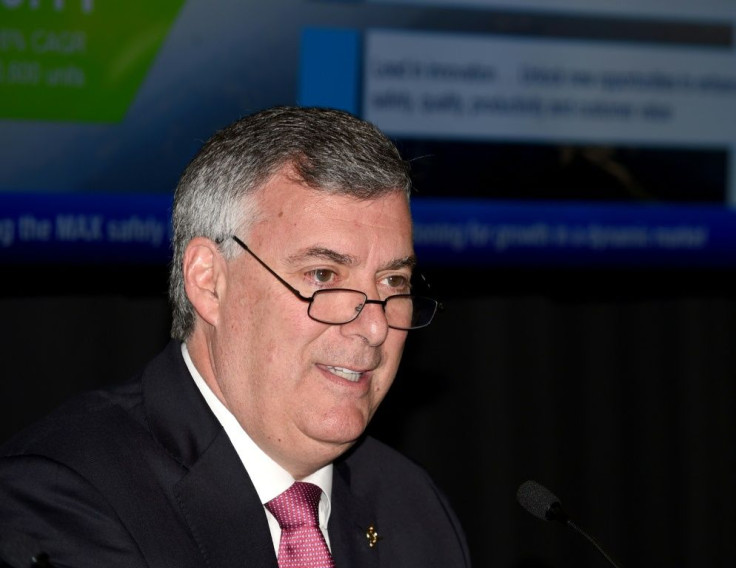Boeing Replaces Head Of Commercial Plane Division Amid MAX Crisis

Boeing on Tuesday replaced the chief of its commercial plane division, the most significant executive departure since the 737 MAX grounding plunged the company into crisis seven months ago.
Kevin McAllister, head of Boeing Commercial Airplanes (BCA), will leave the company effective immediately, Boeing said on the eve of a key quarterly earnings announcement.
McAllister will be replaced by Stan Deal, who has been chief of Boeing Global Services.
The announcement comes as the MAX crisis appears to be deepening following disclosures last week of text messages between two Boeing pilots in 2016 that suggested the company was aware of problems with a flight handling system that has been blamed for both crashes.
The top-selling plane has been grounded since mid-March following two crashes that killed 346 people. Efforts to win regulatory approval to return the plane have dragged on much longer than originally expected.
"Our entire Boeing team is focused on operational excellence, aligned with our values of safety, quality and integrity and we're committed to delivering on our commitments and regaining trust with our regulators, customers and other stakeholders," Chief Executive Dennis Muilenburg said in a statement.
Muilenburg was stripped of his title as chairman earlier this month but kept on as CEO and a board member. Some analysts believe the shift was a prelude to Muilenburg's eventual departure, most likely after the MAX is brought back into service.
McAllister, who joined Boeing in November 2016 after leading General Electric's aviation division, is the most senior figure to exit Boeing in the wake of the crisis.
The MAX was first announced by Boeing in 2011, long before McAllister's arrival, and certified by the FAA in March 2017.
Richard Aboulafia, a vice president at the Teal Group, said McCallister has kept too low a profile during the crisis.
"He was not at all in public at a time when they seem to need someone in public at BCA," Aboulafia told AFP. "I don't see that (McAllister) had anything to do with the MAX's development."

Aboulafia predicted more departures down the road.
Outlook 'negative'
Earlier Tuesday, ratings agency S&P downgraded the outlook for Boeing to "negative," citing concerns the aerospace giant may have misled regulators about the 737 MAX.
S&P cited the November 2016 instant messages released last week in which Boeing pilots discussed significant problems with the Maneuvering Characteristics Augmentation System during a simulation. The MCAS has been implicated in both deadly crashes.
The FAA sharply criticized Boeing for not providing the messages for months after they were discovered.
"The most likely impact is that this could delay approval of the revised software by the FAA and other global regulators due to political pressures," S&P said.
"A significant further delay could require Boeing to cut or suspend production of the MAX, saving cash in the short term but risking disruptions to the supply chain and likely reducing the long-term profitability of the program."
The S&P move comes on the eve of Boeing's third-quarter earnings announcement.
Boeing is expected to report a sharp drop in earnings compared with the year-ago period, reflecting the hit from the halt to deliveries of the 737 MAX.
Analysts project revenues of $19.4 billion, about 23 percent below the year-ago period.
Key matters that could be raised during a conference call with Muilenburg include whether Boeing still expects to receive regulatory approval for the MAX this year, and whether it has any plans to further curtail or temporarily suspend MAX production -- something it has previously described as unlikely.
A note from Canaccaord Genuity also cited the risk that Boeing will take another charge connected to MAX delays.
Shares finished at $337, up 1.8 percent, recovering some of the losses since disclosure of the text messages led to deep declines the last two days.
© Copyright AFP 2024. All rights reserved.




















